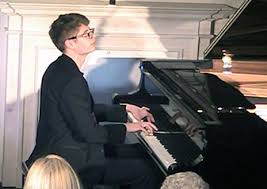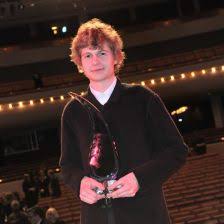
Pavel Kolesnikov, Sir Jack Lyons Concert Hall, University of York, January 10
IT pays to invite big names. The Lyons was justifiably packed for this piano recital promoted by the British Music Society, which was built around two Beethoven sonatas. For anyone just returned from outer space, 2020 is set to be a big year for the great man, as we celebrate his 250th birthday.
Kolesnikov began, however, with a Chopin group, in which he probed the composer’s yearning for the Polish homeland he left at the age of 20, never to return. Rather than plunge straight into the tempestuous Fantasie-Impromptu, he opened with a minor-key nocturne not on the programme. It was magnetic. From then on his audience hung on his every note (some ill-timed, uncovered coughs apart).
Another nostalgic nocturne led into a passionate Third Scherzo in which drama took precedence over clarity. Nobody minded. By then we were in thrall to the seemingly effortless charisma of a man who never plays an unmusical note. Besides, there were always these inner voices that he kept bringing out of the texture.
At this point he allowed the first applause – we were desperate for the release. He then used Chopin’s so-called “Raindrop” prelude as his introduction to Beethoven’s “Moonlight” sonata, with barely a pause between the two (not such a bad idea when you consider that they are effectively in the same key, except that the former is major, the latter minor).

The opening movement was a little distorted by rubato. What followed was unexpected. I have never heard the Scherzo played so slowly and deliberately. By contrast, the finale could hardly have been speedier. It was thrilling for being so close to the edge.
The theme of night continued after the interval in pieces by Schumann, Debussy and Bartok. Kolesnikov brought an eerie edge to Schumann’s halting first Nachstück, elongating the many rests dotting its texture. Debussy’s fireworks (Feux d’artifice) were predictably more colourful, superbly varied, while Bartok’s trademark Night Music from his Outdoors suite chillingly evoked things that go bump in the night.
There was a dignified restraint to the opening movement of Beethoven’s Sonata Op 53, dedicated in 1804 to his erstwhile patron Count Waldstein, which lent its chorale a certain hauteur. The slow movement was less convincing. But the final rondo grew in excitement towards its closing prestissimo, with a riveting wealth of detail throughout.
At a mere 30 years old, Kolesnikov could be adorning our concert platforms for another half-century. Let us hope he can be lured back to York very soon.
Review by Martin Dreyer
